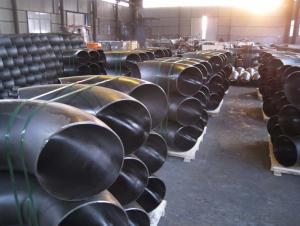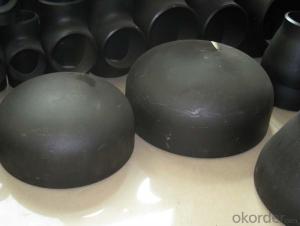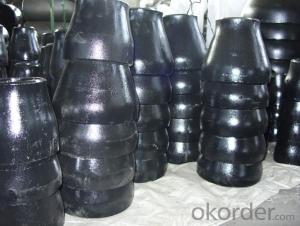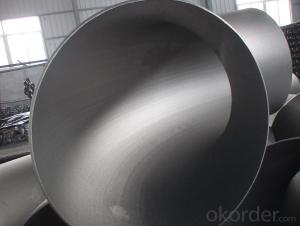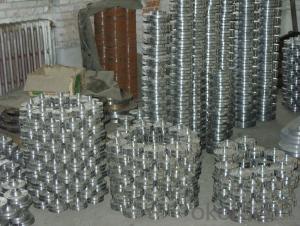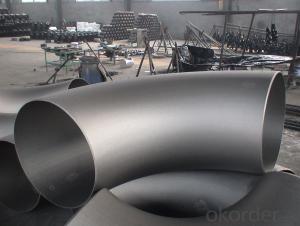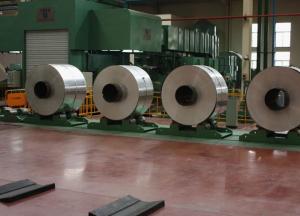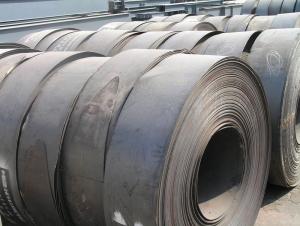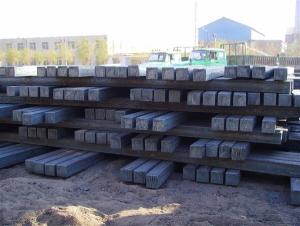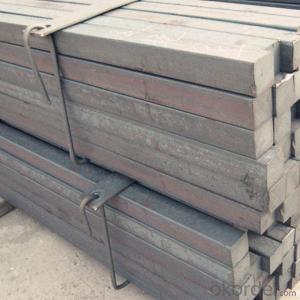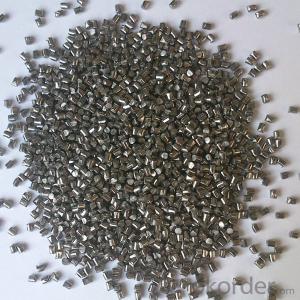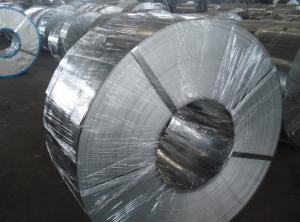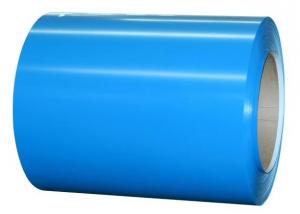Carbon Steel Pipe Fittings ASTM A234 FLANGE 2''
- Loading Port:
- China Main Port
- Payment Terms:
- TT OR LC
- Min Order Qty:
- -
- Supply Capability:
- -
OKorder Service Pledge
OKorder Financial Service
You Might Also Like
Specifications
pipe fitting elbow
Certificate:ISO:9001-2000
New material,completely meet asme and din standard
Best price
1. type: AISI ASTM A234 WPB BW Con Elbow
2. Size: 1/2"-48"(1/2"-24"is seamless and 26"-48"is welded)
3. Wall thickness: sch10-160, STD, XS, XXS
4. Material: A234WPB, A420WPL6, A420WP5, WP11, WP12, WP22, etc
5. Welding line: seamless
6. Angle of bend: 30, 45, 90, 180degree
7. Bending radius: SR, LR
8. Standard: ANSI B16.9, JIS, SB, DIN, GB
9. Surface treatment: black paint, vanis paint, black rust-proof oil,
transparent oil, hot galvanizing
10. Application: petroleum, electricity, chemical, natural gas, metallurgy,construction,
shipbuilding and other fields because of its high pressure, high temperature, etc
11. connection: welding
12. technics:forged
13.Certificate:ISO9001 - 2000, CE, SGS, etc.
14. packaging: wooden case, pallet, container or in accordance with the
requirement of customers
15. Principle: quality fist, customer first, credit first
16. payment: L/C T/T
17. delivery time: 7-25 days after payments
18. Notes: the bevel can be made in accordance with the special requirements
of the customers
19. Others: we can also produce the products according to the requirements
of the customers
The main production:
1. PIPE FITTINGS: elbows, tees, bends, reducers, cap, flanges and sockets etc.
2. PIPE: bult welded pipes, seamless pipes, threaded pipes, etc.
We sincerely welcom customers at home and abroad to visit us and seek common development.
- Q:How is steel used in the construction of shopping malls and retail centers?
- Steel is commonly used in the construction of shopping malls and retail centers due to its strength, durability, and versatility. It is used in various structural elements such as beams, columns, and frames, providing stability and support to the buildings. Steel is also used in the construction of roofs, walls, and facades, offering design flexibility and aesthetic appeal. Additionally, steel is often utilized in the construction of escalators, staircases, and elevators, ensuring efficient vertical transportation within these commercial spaces.
- Q:What are the different types of steel bolts and their uses in the automotive aftermarket?
- There are several types of steel bolts commonly used in the automotive aftermarket. Some of the most common include: 1. Hex bolts: These are standard bolts with a hexagonal head and a threaded shaft. They are used in various automotive applications such as engine mounts, suspension components, and body panels. 2. Flange bolts: These bolts have a built-in washer-like flange under the head, which distributes the load and provides a larger bearing surface. They are ideal for applications requiring a larger load-bearing capacity, such as exhaust systems and heavy-duty engine components. 3. Shoulder bolts: These bolts have a cylindrical shoulder between the head and the threaded section. They are often used in automotive applications where precise alignment or rotational movement is required, such as brake calipers and steering components. 4. U-bolts: These bolts have a U-shaped design and are used to secure leaf springs to the axle in automotive suspension systems. They provide a sturdy and reliable connection, maintaining the proper alignment and stability of the vehicle. 5. Wheel bolts: Specifically designed for securing wheels to the vehicle's hub, these bolts come in various thread sizes and lengths to accommodate different wheel types. They are crucial for ensuring the safe attachment and proper alignment of the wheels. Overall, steel bolts of different types cater to various automotive aftermarket needs, ranging from general fastening to specific applications like suspension, steering, and wheel attachment. It is essential to choose the appropriate bolt type based on the specific automotive component and its load-bearing requirements.
- Q:What are the uses of steel gratings?
- Steel gratings have a wide range of uses in various industries and applications. They are commonly used as flooring and walkways in industrial plants, commercial buildings, and construction sites due to their durability and high load-bearing capacity. They also provide excellent drainage and ventilation, making them suitable for outdoor areas such as bridges, platforms, and stairs. In addition, steel gratings are used as safety barriers, security fencing, and protective coverings in manufacturing facilities and infrastructure projects. Overall, steel gratings are versatile and essential components that enhance safety, efficiency, and functionality in diverse settings.
- Q:How can steel products be recycled?
- Steel products can be recycled by first collecting and separating them from other materials. The steel is then processed in a steel mill where it is melted down and reshaped into new products. This process can be repeated indefinitely, making steel one of the most recyclable materials in the world.
- Q:How is steel rebar reinforced in concrete structures?
- Steel rebar is reinforced in concrete structures by placing it strategically within the concrete, typically in a grid-like pattern. The rebar is then securely tied or welded together to provide additional strength and stability to the structure. This reinforcement helps to distribute the load and prevent cracks or failures in the concrete, ensuring the overall durability and resilience of the structure.
- Q:How do steel products contribute to the healthcare and medical industry?
- Steel products contribute to the healthcare and medical industry in numerous ways. Steel is a durable and hygienic material that is widely used in the construction of medical facilities, including hospitals and clinics. It provides a strong and secure infrastructure for the safe and efficient delivery of healthcare services. Additionally, steel is used in the manufacturing of medical equipment and devices. From surgical instruments to imaging machines, steel's strength and corrosion resistance make it an ideal material for these critical tools. Steel also plays a crucial role in the production of medical implants, such as joint replacements and pacemakers, ensuring their durability and longevity. Furthermore, steel is utilized in the transportation and storage of medical supplies and pharmaceuticals. Steel containers and shelves provide a reliable and secure means of transporting and storing essential healthcare products, ensuring their safety and efficacy. Overall, steel products contribute significantly to the healthcare and medical industry by providing a strong and reliable infrastructure, manufacturing essential equipment and devices, as well as facilitating the transportation and storage of lifesaving medical supplies.
- Q:What are the main factors to consider when selecting steel products for a specific application?
- When selecting steel products for a specific application, the main factors to consider include the required strength and durability, the desired corrosion resistance, the specific dimensions and shape needed, the cost and availability of the steel product, and any specific certification or compliance requirements.
- Q:How are steel products used in the manufacturing of machinery?
- Steel products are used extensively in the manufacturing of machinery due to their strength, durability, and versatility. They are commonly used to construct machine frames, gears, shafts, and other components that require high strength and resistance to wear and tear. Additionally, steel is often utilized in the manufacturing of molds and dies, which are essential for shaping and forming various machine parts.
- Q:What is the role of steel in the manufacturing of railway tracks?
- Steel plays a crucial role in the manufacturing of railway tracks as it is the primary material used to construct the tracks. Steel's high strength, durability, and resistance to wear and tear make it ideal for withstanding the heavy loads and constant train traffic. Additionally, steel's flexibility allows for easy installation, maintenance, and repairs of railway tracks, ensuring the safe and efficient operation of trains.
- Q:How is steel used in the manufacturing of machinery and equipment?
- Steel is commonly used in the manufacturing of machinery and equipment due to its strength, durability, and versatility. It is used to fabricate various components, such as frames, shafts, gears, and casings, that require high strength and resistance to wear and tear. Additionally, steel's malleability allows for easy shaping and forming, making it suitable for complex machinery designs. Its ability to withstand extreme temperatures and pressures further enhances its utility in the manufacturing process.
1. Manufacturer Overview |
|
|---|---|
| Location | |
| Year Established | |
| Annual Output Value | |
| Main Markets | |
| Company Certifications | |
2. Manufacturer Certificates |
|
|---|---|
| a) Certification Name | |
| Range | |
| Reference | |
| Validity Period | |
3. Manufacturer Capability |
|
|---|---|
| a)Trade Capacity | |
| Nearest Port | |
| Export Percentage | |
| No.of Employees in Trade Department | |
| Language Spoken: | |
| b)Factory Information | |
| Factory Size: | |
| No. of Production Lines | |
| Contract Manufacturing | |
| Product Price Range | |
Send your message to us
Carbon Steel Pipe Fittings ASTM A234 FLANGE 2''
- Loading Port:
- China Main Port
- Payment Terms:
- TT OR LC
- Min Order Qty:
- -
- Supply Capability:
- -
OKorder Service Pledge
OKorder Financial Service
Similar products
New products
Hot products
Related keywords
